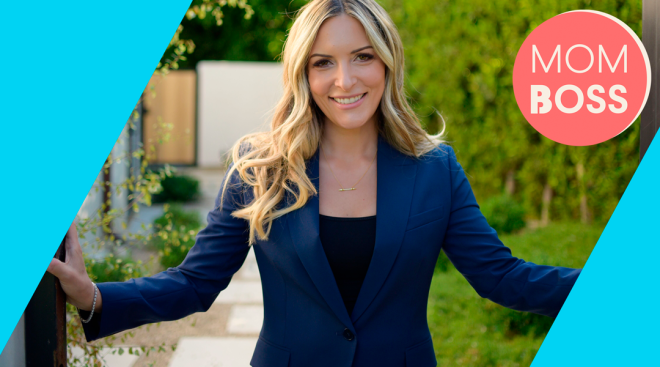Tips for Planning Your Return to Work After Parental Leave
When you think about developmental milestones, you probably imagine baby’s first word or steps. But a big milestone is already happening to you, right now. “One of the most profound developmental transitions is becoming a parent," says Jessica Wilen, PhD, a former psychotherapist who now works as an organizational development consultant for new parents. It’s called “matrescence,” she explains, and it’s the experience of becoming a mom. And, yes, it features big psychological and biological changes that are on the order of adolescence.
Returning to work adds another layer of complexity to this milestone—not only because of the logistical challenges, “but also questions of identity, priorities, and values,” Wilen says. Just picture how hard it is to come back from a one-week vacation, then multiply that by a baby. “You’ve been in full on parenting mode for some period of time, and you’re making a really, really large pivot back to being in professional mode,” adds Daisy Dowling, an executive coach and the founder and CEO of Workparent, a coaching organization for working parents.
You can take steps to reduce the stress, especially if you plan in advance. Read on for tips from experts and moms who’ve been there to ease into your new dual role.
It’s impossible to predict if you’ll experience postnatal depression, anxiety or other physical or mental health issues. If you do, it’s completely reasonable to request more time off or additional accommodations. Just have those conversations “as early as possible or you are ready to, so that your employer knows what to expect and can plan for it on their end,” says organizational development consultant Jess Feldt, who coaches working mothers navigating parental leave.
Lots of companies these days have policies set up to support working parents, such as phase-in programs (more on that below). Some organizations will even pay for parental leave coaching for their employees, Wilen adds, which can help you cope with logistical and psychological challenges.
Ideally, before you go on maternity leave—but certainly before you schedule a logistics talk with your boss—do a little investigative work. “Your manager may or may not know the details, so you have to be your own advocate,” says Dowling. If you work for a large company, these benefits should be in the employee manual on your company intranet. Otherwise, shoot an email to your HR contact.
You can only get what you want from your work if you ask for it. “Your manager can’t read your mind,” says Dowling. She suggests setting up a meeting when you’re two-thirds through your parental leave to confirm logistical details over the phone or Zoom. (Feldt recommends having this conversation before you go on leave; if you haven’t, she says you can save the less immediate details until after you get back.)
When you prepare to talk with your employer, consider how each request will benefit them (for example, it’ll help you to perform better at your job), Wilen suggests. Then imagine your manager’s potential counterarguments, how you’ll address those and a back-up plan (for example, a limited “trial period” to test out longer-term requests). “You likely won’t get all of those things, so prioritize what’s most important to you,” she adds.
“More and more companies are starting to implement” phase-in programs, which gradually ease parents back into work after leave, says Feldt. For example, for the first month you might work part-time, four days per week or from home one day per week. If your company doesn’t, “you’re still well within your rights" to try and create one, says Dowling. "It doesn’t hurt to ask.”
Another option: ask to start on a Wednesday, so you don’t plunge back in with a full week, suggests Feldt. “You’ll be grateful to only jump in with three days versus five," says The Bump community member Jessica F., a mom of four.
Now that you have to pick your child up from childcare every day or relieve a sitter, you won’t be able to spontaneously stay at the office late to finish a big project. Dowling suggests clearly outlining your scheduling needs with your employer up front. “The last thing that you want is for your manager or important colleagues to misunderstand," she says.
That might mean starting your day earlier or working in two “shifts.” For example, leaving the office at 5:00 p.m., going home for baby’s nighttime routine, and logging on again for an hour or so at 7:00 p.m.
To allay concerns, tell your manager, “‘I intend to be just as productive. I’m very committed to this role, but I’m now going to be doing it in a slightly different way,’" says Dowling.
Flexible home working arrangements are common but not universal these days. “A lot of people find that they can negotiate individual or specific arrangements around remote work," says Dowling. “Other people find that in their organization, there’s a hard-and-fast policy.” While remote work might be a great fit, you might also find that getting work done with baby around is emotionally and practically challenging.
Keep in mind that there are many other ways to achieve balance. “Be a lot more creative and broad-minded” with your requests, says Dowling.
If you’re breastfeeding, transitioning to pumping presents another layer of challenges for your return. Buy or rent the equipment you’ll need and give it some test runs at least a couple of weeks before you return.
Remember that the law requires employers to have adequate breaks and a space (aside from restrooms) to enable new moms to pump at work, says Abbey H., a mom of four. Consider working with a lactation professional or postpartum doula, she adds, “to learn how to use your pump effectively.”
Then treat going back to work “almost like the first day of school,” suggests Feldt. The night before your first day back, set out your pump, cleaning supplies and an insulated lunchbox to transport your milk, as well as backup parts in case something breaks or goes missing. Also pick out a cute photo of your baby or a video of them crying, which can cue your body’s let-down response when it comes time to pump, Feldt says.
When Dowling asks her clients to imagine their smoothest first day back to work, “inevitably that means…having trust and faith that baby is well taken care of,” she says. “You may miss your child, but you don’t have any worries.”
Try to set up a week (ideally) of childcare practice runs before your work return to give you confidence in the system you’ve set up, advises Dowling. It also avoids compounding two big transitions. Leave your child for a couple of hours at first, then consider building up to a full day. Also practice the commute to your office, so you know how much time to build in. “You can prepare yourself for how long it’ll take to get them dropped off and what they’ll need. It’ll make your first day back easier and hopefully not as sad,” says Maygan N., a mom of two.
If it’s just not possible financially or practically for you to start childcare early, ask your partner to work from home or take a couple of days off to watch baby, so you can get yourself organized and baby can get used to being with a different caregiver. That way, “both of those transitions are not happening on the same day,” Feldt says.
While your work-life balance will change, the transition to working parent may ultimately make you a better team member and mentor. “Being a working parent is often framed as a distraction in the workplace, but I believe that parenthood is a leadership asset,” says Wilen. “I had greater perspective, became more flexible in my thinking and developed an even stronger sense of empathy.”
A week or so before you return, start planning your “script”—what you want to communicate to your boss and colleagues about what you want from work. This helps prevent misunderstandings among even well-intentioned colleagues and managers about your commitment, capability and potential, says Dowling.
Most primary caregivers take a longer parental leave than their partners—and naturally pick up extra chores, like grocery shopping and vacuuming, while they’re at it. This creates “inequities in the parenting load,” says Feldt.
Again, communication is key. Draw up a list of chores big and small, from walking the dog to laundry duty. At least a couple of days before you head back to work, talk to your partner about the division of labor, to make it a “transition for the entire family,” says Feldt. “Make sure your partner is sharing the load. Don’t let anyone make you the default parent if you don’t want that,” advises Rebekah G, a parent of one.
“Baby could get sick at daycare on day two,” says Feldt. Your backup could be a family member or a babysitter. Or it could simply be coming up with a game plan with your partner for who does what when childcare isn’t an option.
Another benefit of starting childcare early: It’s an opportunity for some much-needed alone time. And don’t feel guilty about it. “Try to make time to do something nice for yourself—even if it’s just taking a bath while baby is napping,” suggests Wilen.
While you may expect to feel sad or excited to return, you may find that in reality you have the opposite experience. Try to be flexible and compassionate with yourself. “It helps with the emotional return and the resilience,” says Feldt.
Hilary B., a mom of one, says it takes a few weeks to get used to your new routine. “Once you do, things will become more bearable.” In the meantime, keep your expectations reasonable. “Nothing long-term about your career needs to be decided in the first four weeks that you’re back. Nothing is a lifetime commitment,” says Dowling.
Plus, more from The Bump:
Daisy Dowling is an executive coach and the founder and CEO of Workparent, a coaching organization for working parents.
Jess Feldt coaches working mothers navigating parental leave.
Jessica Wilen, PhD, is a former psychotherapist who now works as an organizational development consultant for new parents.
NJAAP, Breastfeeding FAQs
DOL, FSLA Protections to Pump at Work
Trends in Cognitive Sciences, Matrescence: lifetime impact of motherhood on cognition and the brain, December 2022
Learn how we ensure the accuracy of our content through our editorial and medical review process.
Navigate forward to interact with the calendar and select a date. Press the question mark key to get the keyboard shortcuts for changing dates.



















































